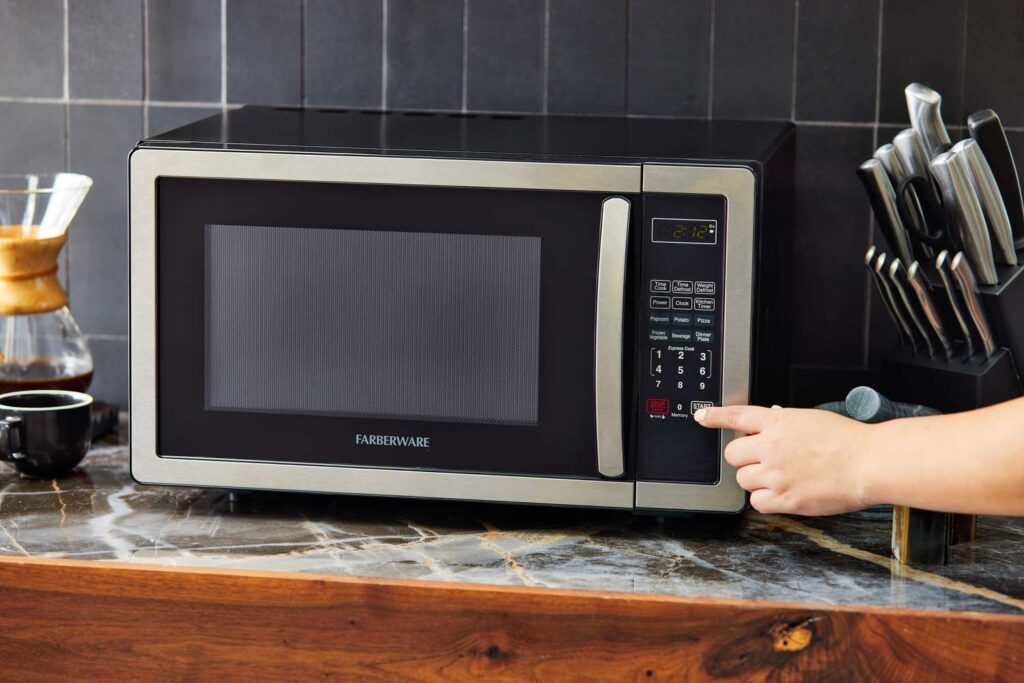A malfunctioning oven can be a source of immense frustration, especially when it fails to heat up properly. Cooking plans can be disrupted, and the inconvenience can be a significant setback. In this article, we’ll explore five common reasons why your oven might not be heating up as it should and discuss practical solutions to get it back in working order.
I. Introduction
A. Importance of a properly functioning oven
Your oven is a crucial appliance in your kitchen, serving as the heart of many culinary adventures. From baking delicious treats to roasting savory dishes, its proper functioning is essential for a seamless cooking experience.
B. Common frustration of an oven not heating up
One of the most common issues people encounter with their ovens is the failure to reach the desired temperature. This can lead to undercooked or unevenly cooked meals, causing both annoyance and concern.
II. Check the Power Source
A. Verifying power connection
Before diving into complex issues, start with the basics. Ensure that your oven is securely plugged in, and there are no loose connections. Sometimes, a simple check can save you from unnecessary troubleshooting.
B. Inspecting circuit breaker
If your oven is not receiving power, check the circuit breaker. A tripped breaker can easily go unnoticed and is a common reason for an unresponsive oven. Reset the breaker and see if it resolves the issue.
III. Faulty Heating Element
A. Overview of heating element function
The heating element is a crucial component responsible for generating the necessary heat in your oven. Understanding its function is vital to identifying potential issues.
B. Signs of a malfunctioning heating element
If your oven is struggling to reach the desired temperature, a faulty heating element could be the culprit. Look out for signs such as visible damage, irregular heating, or a lack of heat altogether.
IV. Temperature Sensor Issues
A. Importance of a functional temperature sensor
The temperature sensor plays a key role in regulating the oven’s internal temperature. Any malfunction can lead to inaccurate readings and affect cooking performance.
B. Signs of a faulty temperature sensor
If your oven is not heating up consistently or cooking food unevenly, a defective temperature sensor might be to blame. Invest in a replacement if you notice discrepancies in temperature settings.
V. Igniter Problems
A. Understanding the role of the igniter
In gas ovens, the igniter is responsible for initiating the combustion process. Issues with the igniter can hinder the oven’s ability to heat up.
B. Indicators of a malfunctioning igniter
A faulty igniter may result in a lack of flames or delayed ignition. If you have a gas oven and notice these signs, it’s crucial to address the igniter problem promptly.
VI. Thermostat Troubles
A. Role of the thermostat in regulating temperature
The thermostat acts as the control center for your oven’s temperature. Problems with the thermostat can lead to inaccurate temperature readings and inconsistent cooking.
B. Symptoms of a problematic thermostat
If your oven is not reaching the desired temperature or is overheating, a malfunctioning thermostat could be the issue. Regularly calibrate or replace the thermostat to ensure accurate temperature control.
VII. Gas Supply Concerns
A. Overview of gas ovens
Gas ovens rely on a steady supply of gas for proper functioning. Any disruption in the gas supply can result in heating issues.
B. Checking and troubleshooting gas supply issues
Inspect the gas line for leaks and ensure the gas valve is open. If you suspect a gas supply problem, it’s crucial to consult a professional for safe and effective resolution.
VIII. Electronic Control Board Malfunction
A. Importance of the control board in oven operation
Modern ovens feature electronic control boards that manage various functions. A malfunctioning control board can disrupt the oven’s overall performance.
B. Indications of a faulty control board
Unresponsive buttons, error codes, or erratic behavior may signal a malfunctioning control board. In such cases, professional intervention may be necessary to diagnose and repair the issue.
IX. Adequate Ventilation
A. Impact of poor ventilation on oven performance
Proper ventilation is essential for the efficient operation of your oven. Inadequate ventilation can lead to overheating and affect overall performance.
B. Ensuring proper ventilation for optimal functioning
Check for any obstructions in the oven vents and ensure proper airflow. Adequate ventilation not only prevents heating issues but also contributes to the longevity of your oven.
X. Routine Maintenance Tips
A. Cleaning and upkeep for efficient oven performance
Regular cleaning is key to preventing the buildup of grease and debris, which can hinder your oven’s performance. Clean the oven interior, racks, and vents periodically.
B. Regular inspections to prevent heating issues
Perform routine inspections of your oven’s components. Look for signs of wear and tear, and address any issues promptly. Proactive maintenance can prevent potential heating problems.
XI. Professional Assistance
A. When to seek help from a technician
If you’ve tried troubleshooting and your oven still isn’t heating up, it’s time to call in a professional technician. Attempting complex repairs without expertise can lead to further damage.
B. Importance of timely repairs for long-term functionality
Timely repairs not only restore your oven’s functionality but also contribute to its long-term health. Ignoring potential issues can exacerbate the problem, leading to more extensive and costly repairs down the line. Timely intervention by a qualified technician ensures a thorough diagnosis and effective resolution.
XII. Preventive Measures
A. Tips to avoid future heating problems
Mind the Cooking Utensils: Using the right cookware can prevent uneven heating. Opt for oven-safe dishes and avoid overcrowding, allowing proper air circulation.
Avoid Excessive Preheating: While preheating is essential, excessive preheating can strain the heating elements. Preheat within the recommended time to maintain their longevity.
Monitor Cooking Times: Regularly check your food during the cooking process to ensure it’s progressing as expected. This helps in early detection of any heating issues.
B. Maintaining the oven for prolonged efficiency
Regularly Replace Filters: If your oven has a vent filter, replace it at regular intervals to maintain proper ventilation and prevent overheating.
Inspect and Clean Seals: Damaged door seals can lead to heat loss. Regularly inspect and clean the seals to ensure they provide an effective barrier, preserving heat.
Calibrate the Oven: Periodically calibrate your oven to ensure accurate temperature settings. This simple step can significantly contribute to consistent cooking results.
XIII. Conclusion
In conclusion, a malfunctioning oven not heating up can be a frustrating experience, disrupting your cooking routine. By understanding the common reasons behind this issue and taking proactive measures, you can ensure your oven operates efficiently. From basic checks like power connections to more complex components like heating elements and control boards, addressing issues promptly is key to maintaining your oven’s functionality.
Remember, routine maintenance and timely professional assistance are crucial for preventing long-term damage and ensuring your oven serves you well for years to come.
Frequently Asked Questions (FAQs)
Q: Can I fix a faulty heating element myself? A: While some minor issues can be addressed by DIY enthusiasts, it’s recommended to seek professional assistance for heating element problems to avoid potential hazards.
Q: How often should I clean my oven for optimal performance? A: Regularly cleaning your oven, including the interior, racks, and vents, every 3-6 months, is advisable to prevent the buildup of grease and debris.
Q: Why is proper ventilation important for my oven? A: Adequate ventilation ensures the efficient operation of your oven by preventing overheating and maintaining a consistent temperature.
Q: Can I use my oven while waiting for a technician to fix it? A: It’s advisable to refrain from using the oven until a technician diagnoses and resolves the issue to prevent further damage or safety risks.
Q: Are there any signs that indicate a gas supply issue with my oven? A: Signs of a gas supply problem include weak or no flames, delayed ignition, or a noticeable smell of gas. If you suspect a gas issue, seek professional assistance immediately.

